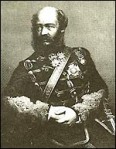The Charge of the Light Brigade: a study in how not to communicate
Susan Pierotti, Creative Text Solutions
We’ve all heard it, probably even learned it at school: ‘Into the valley of death rode the five hundred’, a quote from Lord Tennyson’s famous poem, ‘The Charge of the Light Brigade’. It describes the slaughter of an English brigade in the Crimean War in the 19th century.
Did you know they were killed because of poor communications?
The Crimean War
Let’s backtrack a bit. Russia throughout its history has sought a warm-water port for its fleet, preferably one linked with the Mediterranean Sea. In the 19th century, Russia was extending its territory while its neighbouring Turkey was slowly but surely collapsing. Russia thought to expand into the Black Sea and used the Crimean Peninsula as its diving board into warmer climes. (Considering recent events, nothing has changed!)
Turkey asked Great Britain and France for help, which is why, on a late October day in 1854, the British, French and Turkish armies stared along a valley at their Russian enemy. There were only two mounted brigades, one of which was the Light Brigade. As the name suggests, it consisted of light, fast, unarmoured horses and men armed with lances and sabres, but no guns. They were trained and armed for maximum mobility and speed, not a long march or a hand-to-hand battle.
What was that, again?
[caption id="attachment_258" align="alignleft" width="116"] Earl of Lucan[/caption]
Lord Raglan commanded the entire army. Lord Lucan had overall command of the cavalry units, the Light Brigade being commanded by Lord Cardigan. Lucan and  Cardigan were brothers-in-law—they hated each other.
The problem began when Lucan received a message from Raglan stating:
Lord Raglan wishes the cavalry to advance rapidly to the front, follow the enemy, and try to prevent the enemy carrying away the guns. Troop horse artillery may  accompany. French cavalry is on your left. Immediate.
What Raglan didn’t realise was that Lucan couldn’t see the Russians attempting to take away the huge guns up on the hilly rise. He was down on the flat plain and the only  Russians he could see were ahead of him, en masse and armed with rifles but no big guns.
To make matters worse, the message had been drafted by someone other than Raglan and delivered by another who, when asked which guns, pointed to the wrong ones.
You want me to do what?!
[caption id="attachment_257" align="alignright" width="150"]
Earl of Lucan[/caption]
Lord Raglan commanded the entire army. Lord Lucan had overall command of the cavalry units, the Light Brigade being commanded by Lord Cardigan. Lucan and  Cardigan were brothers-in-law—they hated each other.
The problem began when Lucan received a message from Raglan stating:
Lord Raglan wishes the cavalry to advance rapidly to the front, follow the enemy, and try to prevent the enemy carrying away the guns. Troop horse artillery may  accompany. French cavalry is on your left. Immediate.
What Raglan didn’t realise was that Lucan couldn’t see the Russians attempting to take away the huge guns up on the hilly rise. He was down on the flat plain and the only  Russians he could see were ahead of him, en masse and armed with rifles but no big guns.
To make matters worse, the message had been drafted by someone other than Raglan and delivered by another who, when asked which guns, pointed to the wrong ones.
You want me to do what?!
[caption id="attachment_257" align="alignright" width="150"] Should have been charging up the hill, not on the plain[/caption]
Cardigan could have asked for clearer orders but that meant having to swallow his pride and ask Lucan for clarity. Instead he obeyed the orders and rode in front of his 670 men down a narrow valley surrounded on three sides with enemy fire. Lucan never sent the promised horse artillery, thereby sealing the fate of 118 men, with 127 wounded and 335 horses destroyed.
Lessons learned
If you want to send a precise message, especially one that could save lives, don’t:
Should have been charging up the hill, not on the plain[/caption]
Cardigan could have asked for clearer orders but that meant having to swallow his pride and ask Lucan for clarity. Instead he obeyed the orders and rode in front of his 670 men down a narrow valley surrounded on three sides with enemy fire. Lucan never sent the promised horse artillery, thereby sealing the fate of 118 men, with 127 wounded and 335 horses destroyed.
Lessons learned
If you want to send a precise message, especially one that could save lives, don’t:
- get someone else to draft it
- assume the receiver will have all the information you have
- give someone to deliver it who gives the wrong information
- trust that people will overcome entrenched hostility to one another for the common good.


